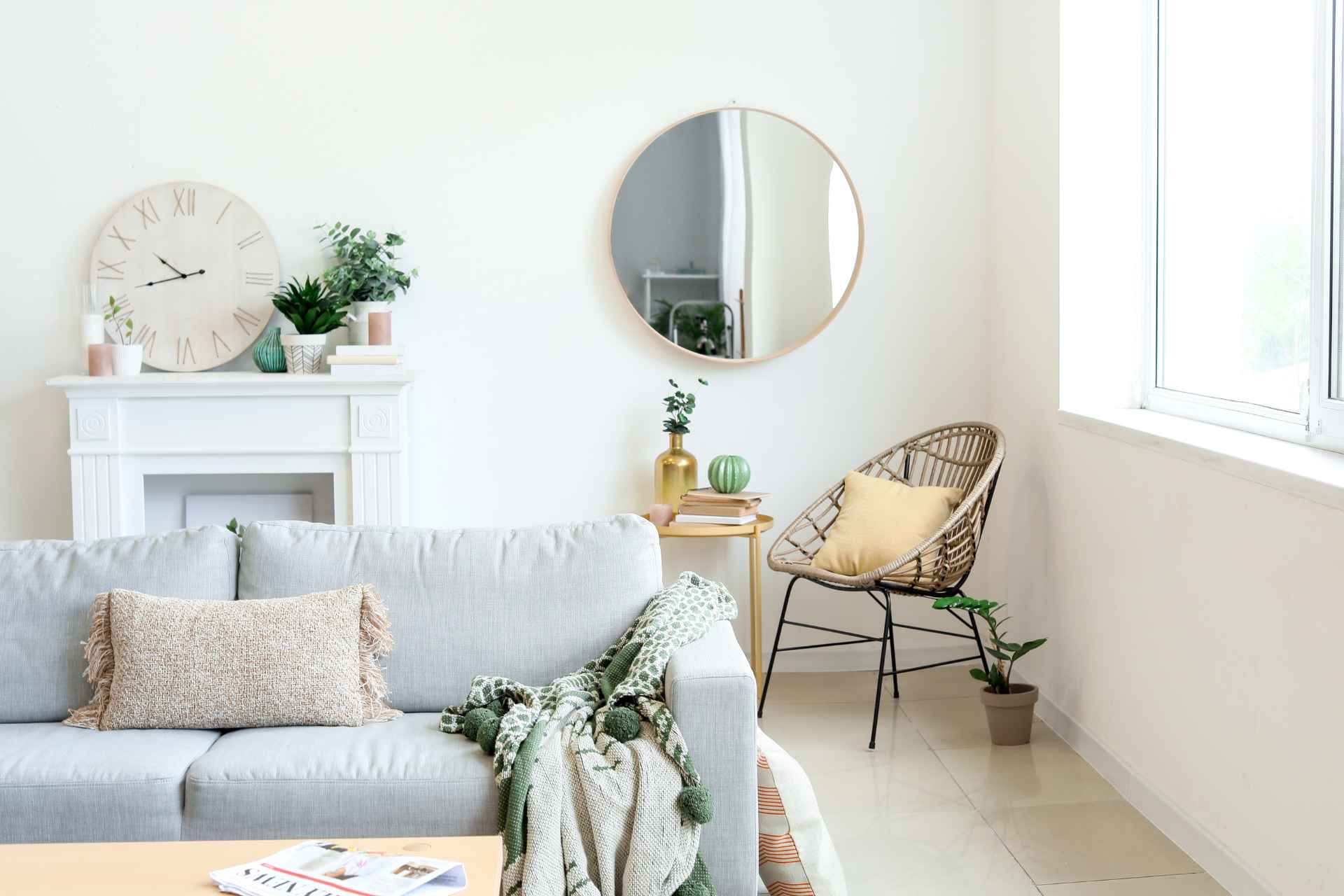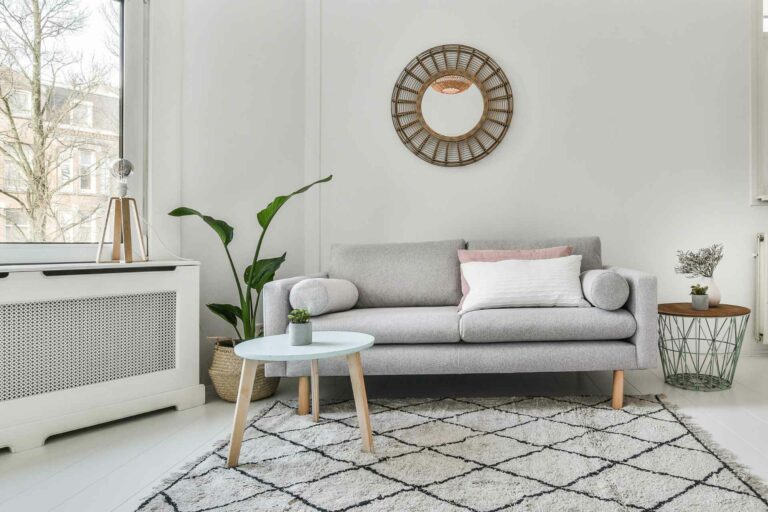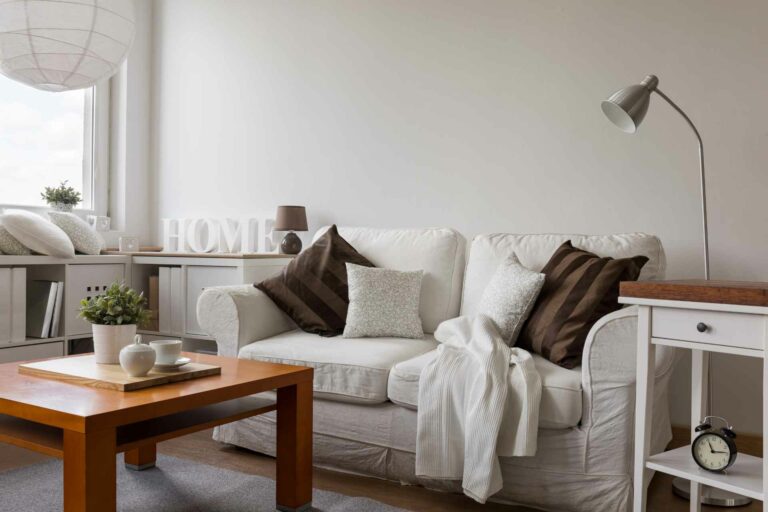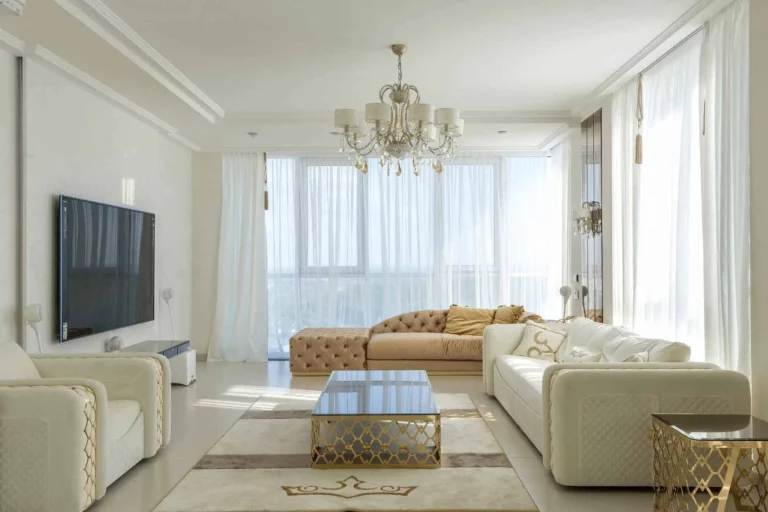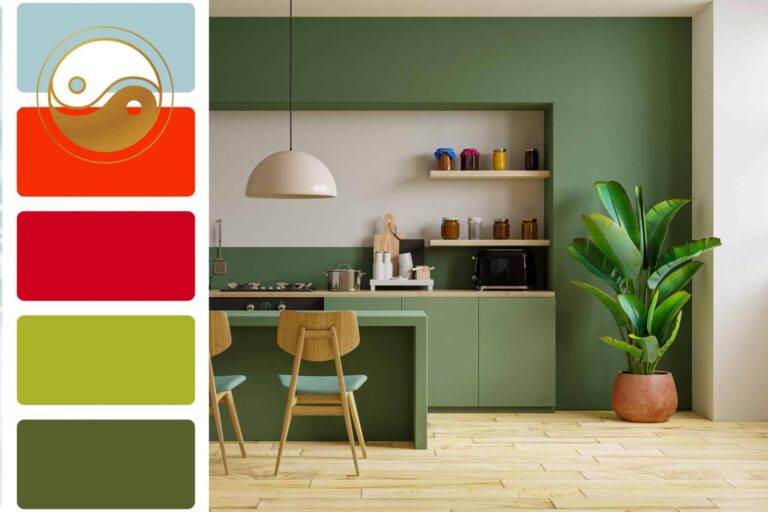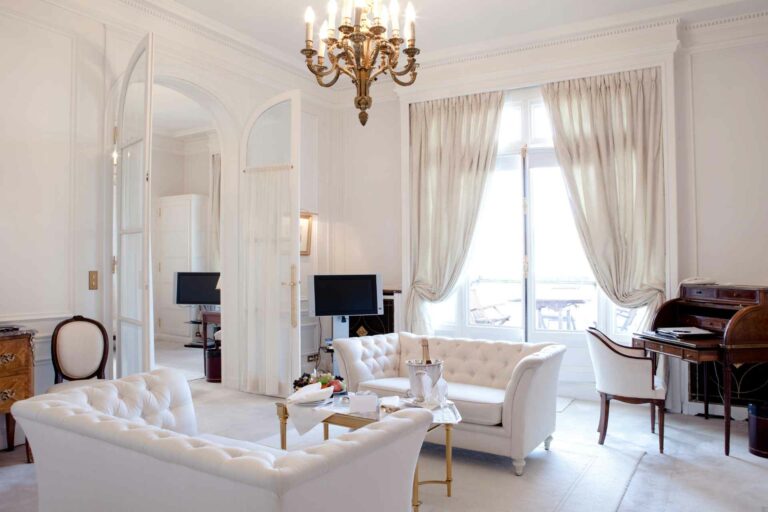Feng Shui Guide: Where to Put Mirror in Living Room for Positive Energy Flow
Feng Shui, an ancient Chinese art and science, plays a significant role in creating harmonious spaces that foster positivity and prosperity. One of the key elements in this practice is the strategic placement of mirrors. The question of where to put mirror in living room might seem trivial, but in the realm of Feng Shui, it holds immense importance. Mirrors, with their ability to reflect and amplify energy, can either enhance the flow of positive Chi (energy) or divert it, depending upon their location. The impact can be profound, influencing the overall energy of your home and, in turn, your well-being. So, understanding the principles of Feng Shui mirror placement in your living room is crucial to creating a space that radiates positivity.
The Principles of Feng Shui: Exploring Chi and Positive Energy Flow.
According to Feng Shui, everything in the universe is connected by a vital life force called Chi. This energy flows through our surroundings, and when it’s in balance, it brings harmony and prosperity into our lives. The placement of objects within a space can affect the flow of Chi, either promoting positive energy or creating blockages that lead to negative outcomes. Mirrors are considered powerful tools in Feng Shui because of their ability to reflect and redirect the flow of Chi. They can also amplify the energy of a space, making it essential to place them mindfully.
The Role of Mirrors in Feng Shui: Reflecting, Amplifying, and Directing Chi
In the practice of Feng Shui, mirrors hold a distinct position due to their unique properties. Primarily, they possess the ability to reflect Chi, effectively doubling the energy within a space. Consequently, a room with a mirror feels larger, more open, and charged with positivity. This reflecting property of mirrors can also be used to bring elements of nature indoors by positioning them to reflect outdoor landscapes, thereby inviting the vitality of natural Chi into your home.
Mirrors also have the ability to amplify Chi. When placed strategically, they can enhance the positive energy of a room by magnifying the impact of beneficial elements within the space. For instance, a mirror placed to reflect a thriving houseplant will multiply its life-giving energy, creating an abundance of positive Chi.
Moreover, mirrors can be used to direct the flow of Chi. A well-positioned mirror can guide the energy along a desired path, promoting a smooth and harmonious flow of Chi throughout the home. This can be particularly useful in correcting Feng Shui challenges such as sharp corners, narrow hallways, or doors that face each other directly, where the movement of Chi might be hindered.
In essence, the strategic placement of mirrors in Feng Shui serves to reflect, amplify, and direct Chi, thereby fostering a living space that is vibrant, harmonious, and filled with positive energy.
Where to Put Mirror in Living Room for Positive Energy Flow: Ideal Locations
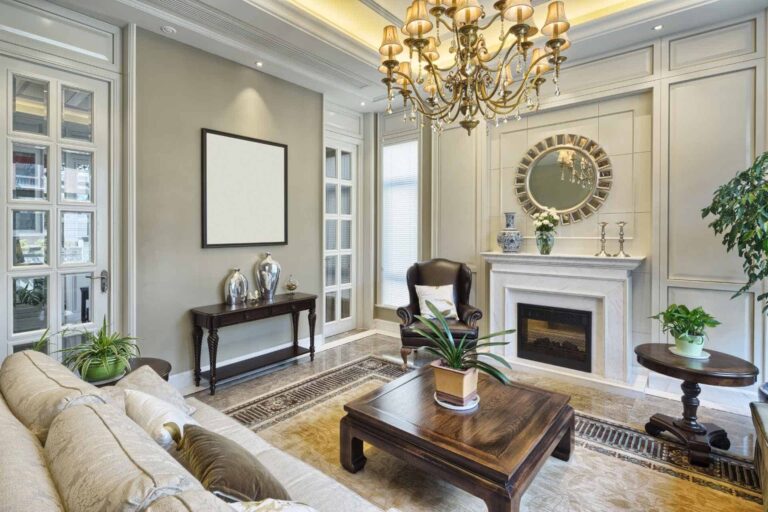
When it comes to Feng Shui mirror placement in the living room, there are a few key principles to keep in mind. First, mirrors should be placed where they can reflect natural light and bring more brightness into space. This helps to create a sense of openness and positivity. Additionally, mirrors should not face the main entrance or windows as this can cause energy to bounce back and forth, creating a chaotic flow. Ideally, mirrors should be placed on the side walls or corners of the room to encourage a smooth and steady flow of Chi.
Another important consideration is the size and shape of the mirror. Round or oval-shaped mirrors are preferred in Feng Shui as they represent wholeness and completeness. Additionally, larger mirrors are generally recommended as they have a stronger impact on energy flow compared to smaller ones.
So, where are the best places to put mirrors in a living room according to Feng Shui principles? Here are some suggestions:
Mirror Placement Near the Entrance
In Feng Shui, the entrance of a home is considered the mouth of Chi—where energy enters. Placing a mirror near the entrance can serve to expand the space and prevent energy from rushing through too quickly, which can disrupt the balance of energy in the home. However, direct reflection of the door should be avoided as it is believed to reflect incoming energy back out of the home, preventing prosperity. Instead, consider placing the mirror perpendicular to the door or on a side wall, reflecting a calming image or part of the room that sparks joy.
Opposite Beautiful Views
Mirrors opposite beautiful views take advantage of the concept that reflections add to the energy of a space in Feng Shui. When a mirror is positioned to reflect a picturesque exterior view, it virtually brings the outside inside, doubling the beauty and positive energy of the outside view within the home’s interior. This can significantly enhance a room’s energy dynamics and create a more harmonious and vibrant living space, filled with the richness and variety of the outdoors. However, remember to ensure that the mirror’s reflection does not directly face the entrance or cause any chaotic energy flow.
In the Wealth Corner
The wealth corner, also known as the southeast corner of your home, holds significant importance in Feng Shui. Placing a mirror in this area is thought to amplify the energy associated with abundance and prosperity. The mirror should reflect symbols of wealth, like a beautiful plant, a piece of valuable artwork, or an object that signifies wealth to you. This creates a positive affirmation of wealth and prosperity in your life. However, be cautious not to place a mirror where it will reflect drains or clutter, as this could symbolize the draining or cluttering of your wealth.
Locations to Avoid for Mirrors in the Living Room

While mirrors can significantly enhance the energy flow in a living room, there are a few places where their placement could be more harmful than beneficial.
- Directly Across Windows: Avoid placing a mirror directly across from a window, especially if the window faces a busy street or an unattractive view. This could direct unwanted energy into the home and create a sense of chaos or unrest.
- Above a Fireplace: Mirrors should not be placed above a fireplace. In Feng Shui, fire and water (the element associated with mirrors) clash, which can negatively impact the harmony of the space.
- Facing the Front Door: A mirror facing the front door is considered to push away all the good energy that enters from it.
- Above a Sofa or Bed: Placing mirrors above sofas or beds is not recommended in Feng Shui. This could lead to restlessness and amplify worries or problems.
- Reflecting Clutter or Unpleasant Areas: Be cautious not to place a mirror where it reflects clutter, drains, or areas of your home that bring up negative feelings. This could magnify the negative energy and block the flow of positive energy.
Directly Opposite the Door
The placement of a mirror directly opposite the door is considered to be bad Feng Shui. This could create a sense of unease and restlessness, as well as push away good energy that enters through the door.
However, if there is no other option for placing a mirror in your living room, you can use a convex (curved) mirror instead of a flat one. This can help to deflect the negative energy and soften its effects.
In general, it is best to consult a Feng Shui expert for specific advice on the placement of mirrors in your living room. They can take into account factors such as the layout of your space, the direction it faces, and your personal energy for personalized recommendations. So while mirrors can have many benefits in home decor, it is important to be mindful of their placement in order to create a harmonious and balanced space.
Facing the Kitchen or Bathroom
Placing a mirror facing the kitchen or bathroom in Feng Shui is often discouraged. The kitchen is associated with elements of fire and water, and a mirror reflecting these energies can lead to imbalance. Furthermore, the bathroom is viewed as a place where negative energy can gather due to its association with waste and cleanliness. A mirror reflecting a bathroom can potentially magnify this negative energy and disrupt the harmony of your living space. If you must have a mirror in these areas, try to position it so it reflects more positive aspects of the room, such as a beautiful piece of artwork or a window with a pleasant view. As always, individual circumstances may vary, and consulting with a Feng Shui expert can provide tailored advice for your specific home layout.
Extra Tips for Feng Shui Mirror Placement
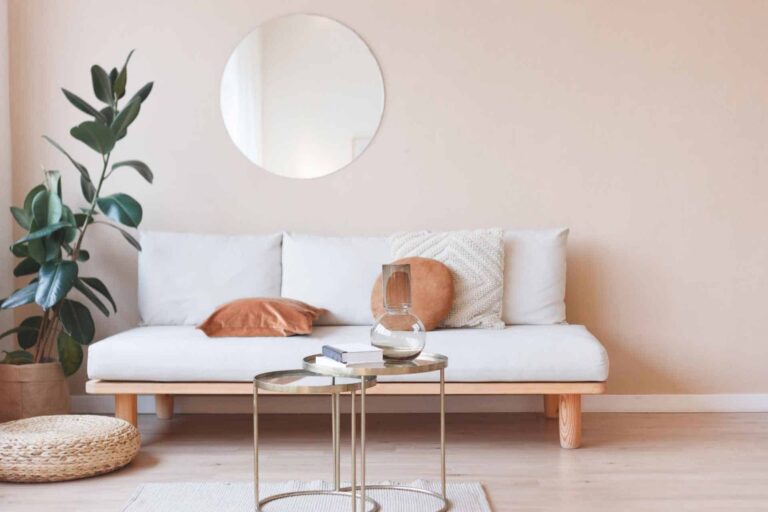
Mirrors can be potent tools in the Feng Shui arsenal, but they should be used wisely. Here are a few additional tips to help you make the most of them.
- Keep Mirrors Clean and Clear: A dirty or blurred mirror can symbolize a lack of clarity or vision, so always keep your mirrors sparkling clean.
- Size Matters: Larger mirrors are generally more powerful in Feng Shui as they have a larger reflective surface. However, always ensure the size is appropriate for the room and doesn’t overwhelm the space.
- Placement for Prosperity: Position a mirror in your dining room in such a way that it reflects the dining table. The dining table is often associated with wealth and abundance, so reflecting it can symbolically double your prosperity.
- Avoid Broken Mirrors: A cracked or broken mirror can symbolize fractured energy, so it’s best to replace any damaged mirrors immediately.
- Avoid Mirrors in the Bedroom: Mirrors in the bedroom, especially ones facing the bed, can disrupt sleep and relaxation. If you must have a mirror in the bedroom, ensure it is not directly reflecting the bed.
Using Large Mirrors in Feng Shui
Large mirrors can be highly effective Feng Shui tools due to their expansive reflective surfaces. When placed correctly, they can serve to broaden the perception of space, increase natural light, and promote positive energy flow. However, careful consideration should be given to their placement. A large mirror should never be positioned where it directly reflects a door or window, as this can disrupt the flow of chi and potentially push positive energy out of the space. In living areas, large mirrors can be used to reflect beautiful views or attractive decorative elements, thus doubling their impact and enhancing the overall atmosphere of the room.
Keeping Mirrors Clean and Unbroken
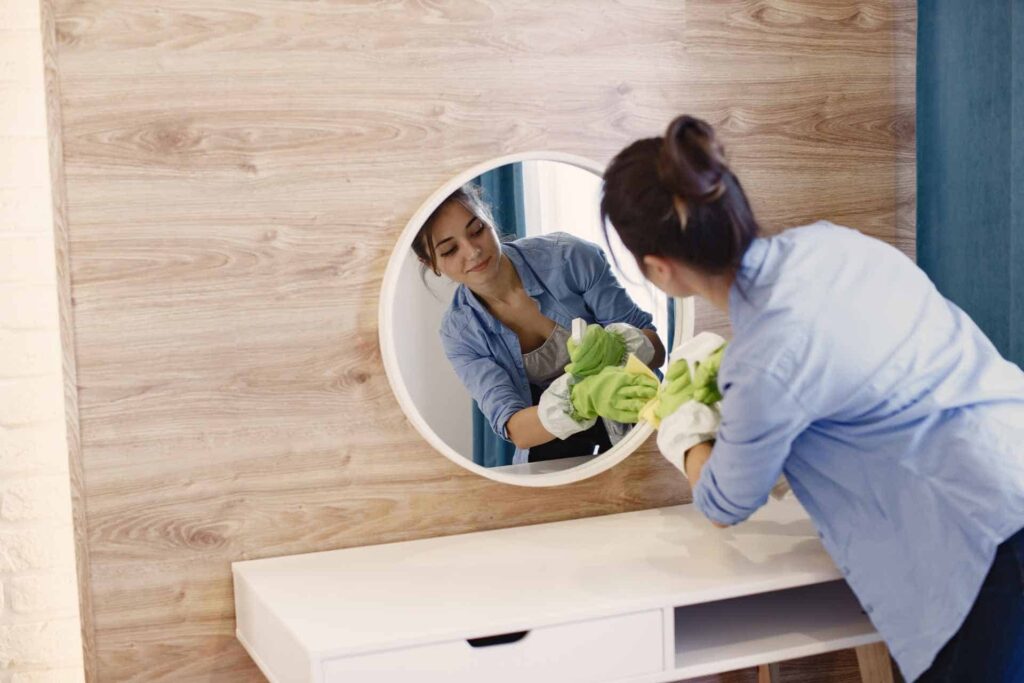
Maintaining the cleanliness and integrity of your mirrors is a paramount part of practicing Feng Shui. A mirror that is dirty, smudged, or broken can symbolize neglect of one’s personal energy and can attract negative chi into your home. Hence, it’s crucial to regularly clean your mirrors using a streak-free cleaner to ensure they are always shining and clear. Not only will this enhance the mirror’s reflective power, but it will also keep the energy in your home clean and vibrant. Similarly, cracked or broken mirrors should be replaced at the earliest opportunity to prevent the accumulation of fractured or disrupted energy.
Case Studies: Successful Feng Shui Mirror Placement in Living Rooms
In one particular case, a homeowner in San Francisco successfully transformed their small, dimly lit living room into a vibrant, inviting space by employing Feng Shui mirror placement. They installed a large mirror opposite their living room window, which not only reflected the beautiful city view but also amplified the natural light entering the room. This strategic placement boosted positive energy flow and made the room feel more expansive and welcoming.
Another compelling example involves a family in Vancouver who utilized mirrors to enhance their living room’s Feng Shui. The room had an unattractive structural column that disrupted the flow of chi. By cleverly positioning a large mirror to reflect appealing decorative elements and distract from the column, they were able to improve the room’s energy flow. The mirror’s reflection virtually doubled the presence of beautiful features, thereby enhancing the overall atmosphere and making the disruptive column less apparent.
Both cases demonstrate the power of effective mirror placement in Feng Shui, highlighting the potential to transform living spaces, enhance positive energy flow, and increase room appeal.
Conclusion
In conclusion, the art of Feng Shui, specifically the strategic placement of mirrors, holds immense power in enhancing the positive energy flow within living spaces. It’s not merely about creating an illusion of extra space or reflecting attractive elements; it is fundamentally about improving the ambiance and energy of your environment. From reflecting natural light to diverting attention from negative architectural elements, proper mirror placement can bring about a profound transformation in the energy dynamics of your home. Whether you live in a small apartment or a sprawling mansion, a well-placed mirror can work wonders, creating harmonious living spaces that radiate positivity and warmth. Undeniably, successful Feng Shui mirror placement is a testament to the adage – that beauty is more than skin deep; it is about nurturing positive energy within and around us.

